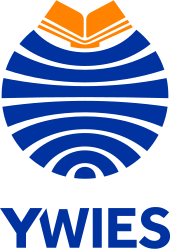Go Back
News
Wechat News
DSE Programme Episode 12
Wechat News
12 May, 2025
15 : 09
It's important to note that the decision to switch to the DSE curriculum should be based on multiple factors, including the student's grade level, academic foundation, and future education plans. Below, we analyze the pros and cons of transitioning at different stages from a Biology perspective and provide tailored recommendations.
Hong Kong's junior secondary science curriculum differs significantly from that of the mainland. In Hong Kong, science is taught as an integrated subject combining Physics, Chemistry, and Biology, with Biology accounting for about one-third of the content. Instruction emphasizes foundational concepts, and experiments are primarily demonstration-based or conducted in groups. In contrast, mainland schools treat Biology as a standalone subject with a more structured curriculum, including dedicated lab sessions. These differences shape students' knowledge frameworks and practical skills in distinct ways.
Advantages of Switching at Form 3
Mainland junior high students possess several advantages when transitioning to DSE Biology. First, their prior knowledge aligns well with the DSE core content. For example, 70% of the DSE compulsory module "Cells and Molecules of Life" overlaps with the mainland's Grade 7 (Year 1) Biology syllabus, providing a solid foundation.
In terms of scientific aptitude, mainland students’ strong mathematical training gives them an edge in quantitative tasks like genetic probability calculations and data analysis—skills that are heavily tested in DSE exams.
For elective modules, such as DSE's "Biotechnology", mainland students may even have a head start. Many have already encountered advanced concepts like PCR and genetic engineering through competitions or self-study, which are central to this elective. Additionally, the difficulty level of DSE core topics (e.g., cell biology, genetics) is lower than that of the mainland Gaokao, particularly in multiple-choice questions, making it easier for mainland students to secure high scores.
Challenges to Address
However, there are hurdles to overcome. The DSE curriculum includes localized content—such as Hong Kong's Mai Po Wetlands ecosystem and public health case studies (e.g., dengue fever control)—which are absent in mainland courses and require supplementary learning.
Pedagogically, DSE's open-ended questions (e.g., bioethics discussions) demand critical thinking and multi-perspective analysis, contrasting with the mainland's emphasis on standardized answers. Electives like Applied Ecology may also feature localized case studies (e.g., Hong Kong's coastal ecosystems) unfamiliar to mainland students.
While foundational DSE questions are simpler, achieving top grades (Level 5+) requires mastery of subjective, open-response techniques that call for targeted practice.
Characteristics of Modern
Overall, mainland students with strong STEM foundations and self-directed learning abilities can adapt well to DSE Biology, especially those excelling in calculations. To smooth the transition, we recommend:
-
Familiarizing early with Hong Kong-specific ecological examples.
-
Practicing DSE past papers to hone critical thinking for open-ended questions.
-
For schools: Offering workshops on localized content and lab report writing.
-
For students weak in English: Prioritizing mastery of Biology terminology to avoid misinterpreting open-response prompts.
Comparative Pros and Cons for Form 3 Switchers
Transitioning to DSE Biology at the junior high level is highly viable for mainland students. The alignment in core content (e.g., 70% overlap in cell biology) ensures minimal knowledge gaps, while their mathematical rigor boosts performance in genetics and data analysis—key scoring areas.Those opting for electives like Biotechnology may even find themselves ahead, as many mainland students already grasp advanced techniques like PCR through extracurricular exposure. Crucially, DSE's core modules are less demanding than the Gaokao, particularly in multiple-choice sections, allowing mainland students to consistently score well and build a strong grade foundation.
Challenges like localized case studies (e.g., Mai Po Wetlands) and open-response formats (e.g., ethics debates) require proactive preparation but are manageable with targeted practice.
Maximizing the DSE Edge
Students with strong analytical skills can leverage DSE's genetics and molecular biology modules as high-score anchors. Early exposure to past papers and localized case studies is advised. For English language support, focused terminology drills are essential. Schools might consider tailored programs (e.g., Hong Kong case study deep dives, lab report workshops) to accelerate adaptation.
In summary, mainland Form 3 students are well-positioned to excel in DSE Biology with strategic preparation, unlocking broader university pathways.
👇Key Recommendations
-
Ideal candidates: Strong in STEM/logic, willing to supplement local knowledge.
-
Caution advised: Students struggling with open-ended, critical-thinking tasks.
-




